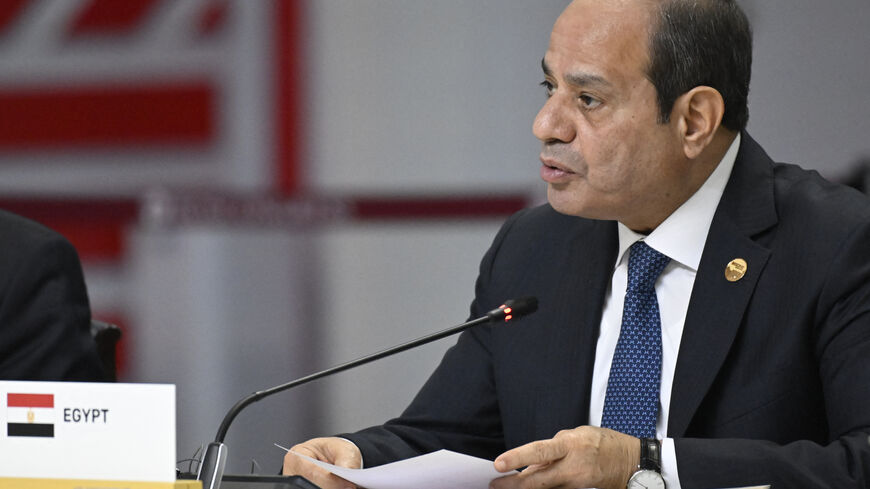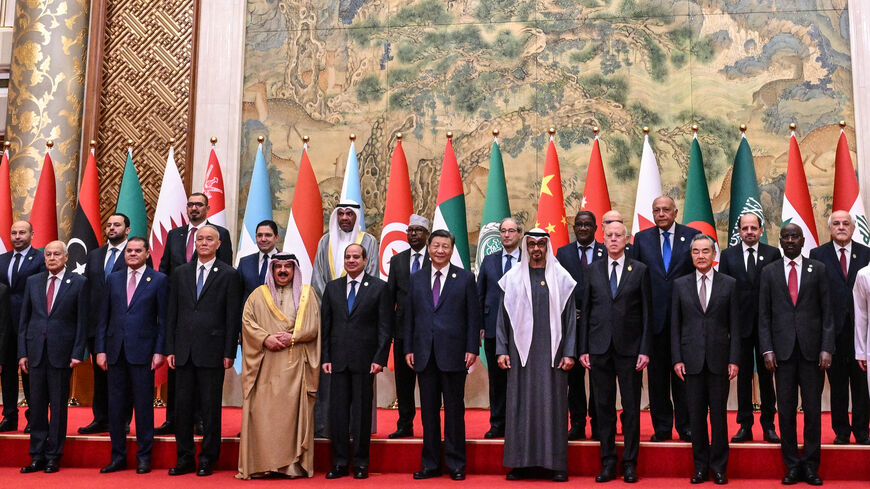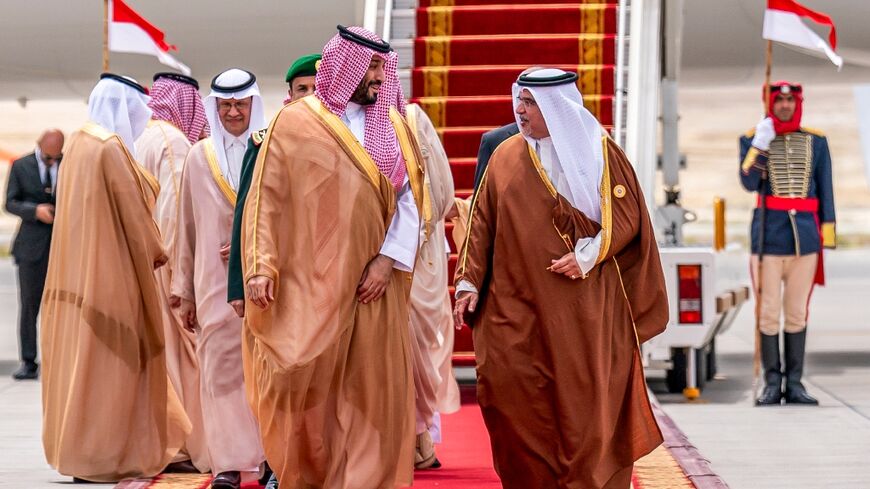Arab League calls for 'immediate' Israeli withdrawal from Gaza, deployment of international force
The statement further expresses the Arab nations' “firm position for a just and comprehensive peaceful settlement of the Palestinian issue” and their support for an international peace conference on the Israeli-Palestinian conflict.

The 33rd Arab League summit held in the Bahraini capital, Manama, concluded on Thursday with a call for the “immediate” withdrawal of Israeli forces from all areas in the Gaza Strip and an end of the siege imposed on the enclave, while condemning Israel’s ongoing offensive.
The statement further expressed the Arab nations' “firm position for a just and comprehensive peaceful settlement of the Palestinian issue” and their support for an international peace conference on the Israeli-Palestinian conflict.
The statement called on the international community to advance the peace process toward achieving a just peace based on the two-state solution.
“We call for the deployment of international protection and peacekeeping forces affiliated with the United Nations in the occupied Palestinian territory until the two-state solution is implemented,” the statement added.
The Arab League summit kicked off amid a growing number of challenges facing the entire Arab world.
Besides Gaza, the agenda for the meeting, held under the chairmanship of Bahraini King Hamad bin Isa Al Khalifa, also covered the ongoing conflicts and unrest in Libya, Sudan, Syria and Yemen.
Who is attending?
Among those who attended in Manama are Egypt’s President Abdel Fattah al-Sisi, Jordan’s King Abdullah II, Palestinian Authority President Mahmoud Abbas, Qatar’s Emir Tamim bin Hamad Al Thani, Saudi Arabia’s Crown Prince Mohammed bin Salman, and United Arab Emirates Vice President and ruler of Dubai Sheikh Mohammed bin Rashid Al Maktoum.
President Bashar al-Assad of Syria also took part in the summit, the second time he has done so since Syria rejoined the Arab fold at last year’s gathering of heads of state. The league suspended Syria's membership in 2011 in response to the Assad government’s brutal crackdown on Arab Spring protests.
Also in Bahrain for the summit are the presidents of the Comoros, Djibouti, Iraq, Lebanon, Mauritania and Morocco, as well as the prime ministers of Kuwait and Somalia and the foreign ministers of Sudan, Tunisia and Algeria.
The head of the Yemen’s Presidential Leadership Council, Rashad Mohammed Al-Alimi, and the chairman of the Presidential Council of Libya, Mohamed Al Menfi, attended, as well as Sayyid Asaad bin Tarik Al Said, Oman’s deputy prime minister for international relations and cooperation affairs and special representative of the sultan.
UN Secretary-General Antonio Guterres is also taking part.
Opening statements
Saudi Arabia hosted last year's summit, so the meeting in Manama opened with Crown Prince Mohammed handing the chair to King Hamad.
In a speech, the crown prince called on the international community to halt the “Israeli aggression against Gaza.” He also urged an end to all actions that threaten the safety of maritime navigation, a reference to the Red Sea attacks on vessels launched by Houthi rebels in Yemen after the Gaza war erupted last October.
King Hamad noted that the summit is being held amid complex regional and international situations of wars, including conflicts that “affect the Arab nation in its identity, security, sovereignty, unity and territorial integrity.”
He also stressed the need to adopt a joint and urgent Arab and international position to end the wars in the region and establish an independent Palestinian state.
Thursday’s summit is the second such gathering since the Israeli military launched an air and ground campaign in Gaza in response to Hamas’ unprecedented attack on southern Israel on Oct. 7, killing some 1,200 people and taking more than 240 others hostage.
Since then, more than 35,000 Palestinians have been killed in Gaza, according to the Health Ministry in the enclave. Meanwhile, the humanitarian situation continues to rapidly deteriorate amid a lack of access to life-saving assistance and the collapse of the health sector. The UN World Food Program has warned of a "full-blown famine" in the besieged enclave.
One month after the outbreak of the Gaza war, Riyadh hosted an emergency summit of the Arab League and the Organization of Islamic Cooperation to discuss developments in the conflict.
The final communique rejected Israeli claims of acting in “self-defense” and called on the UN Security Council to adopt “a decisive and binding resolution” to halt the Israeli offensive.
Speaking at Thursday’s summit, Secretary-General Guterres condemned the “collective punishment of the Palestinian people” as well as the “abhorrent Oct. 7 terror attacks by Hamas.”
He also called for an “immediate humanitarian cease-fire” in Gaza and the “unconditional release of all hostages.”
What was discussed?
According to reports, the summit’s agenda included 23 items covering joint Arab action in the political, economic, social, cultural, media and security fields, and Arab cooperation with international and regional groupings. The Palestinian issue and the war in Gaza were the main topics of discussion.
The participants adopted the so-called Bahrain Declaration, a proposal drafted at a preparatory meeting on Tuesday calling for a UN-backed international peace conference on the Israeli-Palestinian conflict to be held in Manama. Arab League foreign ministers had convened in Manama on Tuesday for the preparatory meeting ahead of the summit. They reached agreement on the need for a peace conference to end the war in Gaza and resolve the Palestinian issue.
On Thursday at the summit, Arab leaders discussed reactivating the Arab Peace Initiative, put forward by Saudi Arabia and adopted at the 2002 league summit, in Beirut. The proposal offers Arab normalization with Israel in exchange for Israel withdrawing from the Palestinian territories occupied in 1967 and agreeing to the establishment of an independent Palestinian state based on the 1967 borders and with East Jerusalem as its capital.







